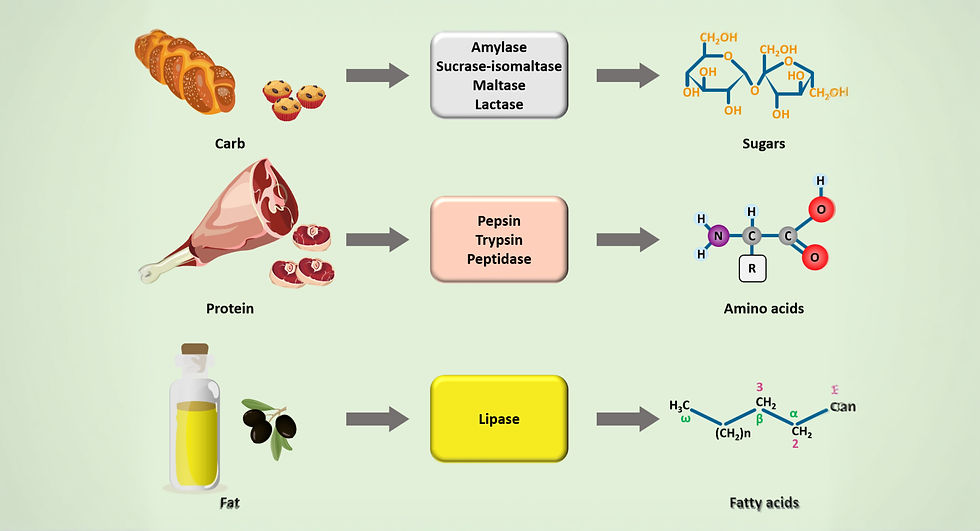Why Digestion Slows as You Age—And How to Support It
- Lyn-Genet Recitas
- Mar 7, 2025
- 2 min read

Many people notice that their digestion isn’t quite as efficient as they get older. Bloating, slower metabolism, and irregularity become more common, but the good news is that there are ways to support a healthy digestive system at any age. Let’s explore why digestion slows over time and what you can do to keep your gut functioning optimally.
1. Reduced Stomach Acid and Enzyme Production
As you age, your body naturally produces less stomach acid and fewer digestive enzymes. Stomach acid is essential for breaking down proteins and absorbing nutrients like iron and B12, while enzymes help digest fats and carbohydrates. When these levels drop, food may sit in the stomach longer, leading to bloating, discomfort, and sluggish digestion. Supporting digestion with enzyme-rich foods like ginger, bitter greens, and spices like black pepper can help encourage better breakdown of food.
2. Slower Gut Motility
The digestive tract relies on muscle contractions, known as peristalsis, to move food efficiently through the system. With age, this process can slow down, increasing the likelihood of constipation or bloating. Staying active and including fiber from well-tolerated sources—such as cooked greens, root vegetables, and properly prepared grains—can help maintain healthy gut motility.
3. Gut Microbiome Changes
Your gut microbiome is made up of trillions of bacteria that help regulate digestion, immunity, and even metabolism. Over time, this balance shifts, and while probiotics are often marketed as a solution, taking them regularly may actually reduce gut diversity rather than support it.
Instead of relying on probiotic supplements, focus on eating a wide variety of prebiotic foods that nourish the beneficial bacteria already present in your gut.
4. Medication and Lifestyle Factors
Many people take medications for common age-related concerns, such as acid reflux, blood pressure, or pain management. Unfortunately, some medications can negatively impact digestion by reducing stomach acid, altering gut bacteria, or slowing gut motility. If you notice digestive changes after starting a new medication, it may be helpful to discuss alternatives or supportive strategies with your healthcare provider.
5. Hydration and Fiber—A Key Balance
Hydration plays a crucial role in digestion. Without enough water, fiber can have the opposite of its intended effect, leading to constipation. Instead of increasing fiber intake without adjusting hydration, focus on drinking enough water throughout the day. Warm or room-temperature water is often better tolerated than very cold beverages, as it helps support circulation and digestion without shocking the system. Finish all water an hour before dinner.
Supporting Your Digestive Health Naturally
Encourage stomach acid production with bitter foods and digestive-friendly herbs.
Maintain gut motility through movement and well-tolerated fiber sources.
Support microbial diversity by focusing on a variety of whole foods instead of relying on probiotic supplements.
Stay hydrated to assist digestion and nutrient absorption.
If taking medications, be mindful of their impact on digestion and adjust diet accordingly.
By making a few mindful adjustments, you can support optimal digestion and overall gut health as you age.



Comments